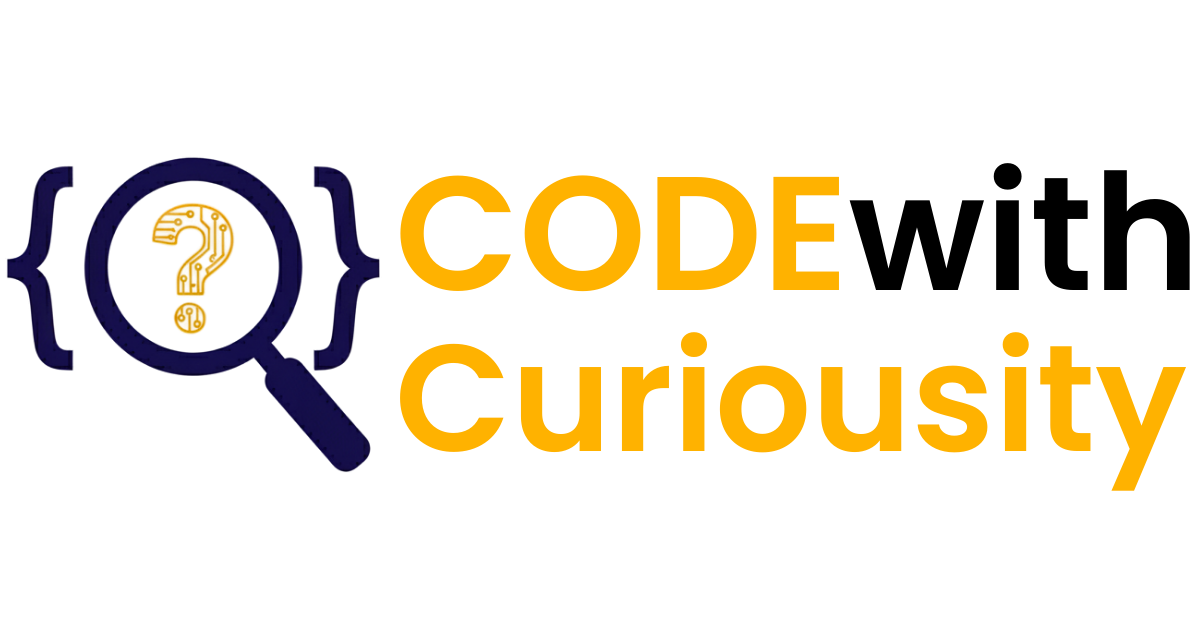-
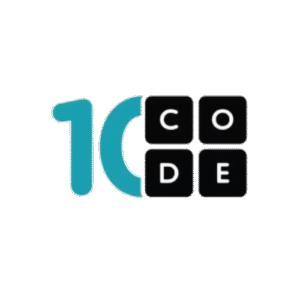
Rated 4.5 out of 5
Code.org is a nonprofit organization dedicated to expanding access to computer science education, especially in schools and among underrepresented groups. Founded in 2013, its mission is to ensure that every student, regardless of background, has the opportunity to learn computer science. Code.org is best known for initiatives like the “Hour of Code” and its K–12 curriculum used by tens of millions of students worldwide. Its platform provides free, engaging, game-based learning environments that teach core programming concepts using blocks, JavaScript, and Python. Code.org’s offerings are split into age-appropriate courses—from early elementary students learning logic through puzzles, to high schoolers tackling AP Computer Science. Teachers are provided with classroom resources, lesson plans, and training, making it an excellent tool for public education systems. Although it doesn’t offer professional certifications or advanced developer courses, Code.org plays a crucial role in demystifying coding and sparking interest at an early age. With a strong emphasis on equity, accessibility, and inclusion, Code.org has become one of the most impactful education platforms for early computer science learning.
-
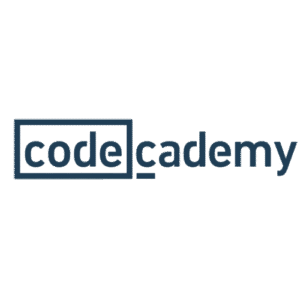
Rated 4.5 out of 5
Codecademy is a well-known interactive platform that teaches coding and computer science fundamentals through hands-on practice. Launched in 2011, Codecademy’s mission is to democratize tech education by making it accessible and engaging for everyone. The platform offers free and paid plans covering programming languages like Python, JavaScript, HTML/CSS, SQL, and more. Codecademy Pro includes guided learning paths, quizzes, portfolio-building projects, and real-world exercises. One of the platform’s most compelling features is its built-in code editor, allowing users to practice coding immediately after learning a concept—ideal for learners who retain knowledge through doing rather than watching. Codecademy’s career tracks guide users toward jobs like front-end developer, back-end developer, or data analyst. While it doesn’t issue formal degrees or certificates recognized by universities, its completion certificates and practical exercises are highly valued in entry-level tech hiring. The clean interface, gamified experience, and flexible pace make Codecademy particularly appealing for beginners, self-learners, and hobbyists starting their programming journey.
-

Rated 4.5 out of 5
Coursera, launched in 2012 by Stanford professors Andrew Ng and Daphne Koller, is one of the world’s leading online education platforms. It partners with over 300 universities and organizations—including Yale, Google, IBM, and the University of Michigan—to offer courses, certifications, and full degree programs. Coursera’s catalog includes free courses, paid specializations, professional certificates, and even bachelor’s and master’s degrees in fields like business, data science, computer science, and healthcare. One of Coursera’s standout features is the emphasis on academic credibility—learners can earn certifications that are recognized by employers and sometimes even university credit. Its guided learning paths, peer-reviewed assignments, quizzes, and hands-on projects create a structured learning environment. Coursera is ideal for those seeking career advancement or academic enrichment. Its mobile-friendly design, flexible scheduling, and financial aid options help learners from all backgrounds achieve their educational goals.
-
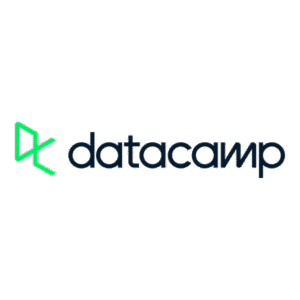
Rated 4.6 out of 5
DataCamp is an online learning platform specializing in data science, analytics, and programming. Founded in 2013, it offers interactive, hands-on learning paths focused on real-world data skills. The platform caters to both beginners and experienced professionals looking to master tools like Python, R, SQL, Power BI, and Excel. Courses are designed as short, bite-sized modules with integrated code editors that allow users to practice directly within the browser. One of DataCamp’s standout features is its structured learning paths (called “Career Tracks” and “Skill Tracks”), which guide learners through a logical progression of topics—from fundamentals to advanced skills. DataCamp also includes projects, assessments, and a mobile app for learning on the go. While it doesn’t offer formal university certifications, it does provide DataCamp certificates upon completion, which are widely recognized in the industry. With affordable monthly subscriptions and discounts for students and teams, it’s a practical platform for those looking to upskill in data, AI, and business intelligence. Its intuitive interface, engaging content, and emphasis on applied learning make it a favorite among aspiring data professionals and working analysts alike.
-
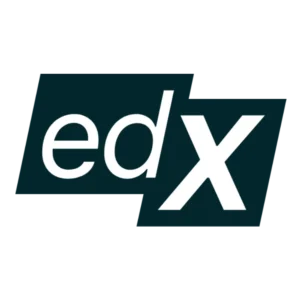
Rated 4.5 out of 5
edX is a nonprofit online learning platform founded in 2012 by Harvard University and the Massachusetts Institute of Technology (MIT). Now operated by 2U, edX provides a wide range of high-quality courses from over 250 global institutions, including top universities and corporations. It offers more than just casual learning—its key focus areas include MicroMasters, Professional Certificates, and full online degrees. Courses are often academic in nature and can be audited for free, with paid options available for verified certificates. edX is especially popular among professionals seeking to enhance their qualifications and among students looking to study real university-level material. With a focus on accessibility, learners can study at their own pace with video lectures, quizzes, and discussion forums. edX’s commitment to open-source technology and inclusive education has made it a respected name in both academic and corporate learning environments. It is considered one of the pioneers in the Massive Open Online Courses (MOOCs) movement.
-

Rated 4.7 out of 5
freeCodeCamp is a nonprofit, open-source platform offering a fully free curriculum for learning web development, data visualization, and software engineering. Launched in 2014 by Quincy Larson, the platform is built around self-paced challenges and hands-on projects that simulate real-world coding scenarios. Learners can earn certifications in topics like responsive web design, JavaScript algorithms, data structures, APIs, and machine learning. Unlike many video-heavy platforms, freeCodeCamp focuses on interactive coding exercises, where users learn by doing. The curriculum includes thousands of hours of practice, supplemented by articles, tutorials, and a highly active global community. freeCodeCamp also encourages learners to contribute to real nonprofit projects as part of their certification paths, helping them build portfolios and gain experience. The platform has become a go-to resource for aspiring developers, especially those from underserved or non-traditional educational backgrounds. Its emphasis on accessibility, real projects, and community makes it one of the most respected platforms in the self-taught tech space. Best of all, it’s completely free—with no ads, paywalls, or premium tiers.
-

Rated 4.6 out of 5
LinkedIn Learning, formerly Lynda.com, is an online learning platform that integrates directly with LinkedIn profiles, making it ideal for professionals who want to develop skills and showcase them to potential employers. It offers 20,000+ video-based courses in areas such as business, technology, creative arts, and personal development. Courses are taught by industry professionals and structured in short, digestible lessons. The platform provides certificates of completion that automatically appear on the learner’s LinkedIn profile, adding value to one’s digital resume. One of LinkedIn Learning’s strengths is personalization—its AI suggests courses based on your job title, skills, and industry trends. Users can learn at their own pace on desktop or mobile devices. With an affordable subscription model (monthly or annual), the platform is popular among professionals, freelancers, and corporate teams. It’s especially beneficial for soft skills training, leadership development, and staying updated on the latest tools and technologies. While it may not offer in-depth, project-based learning like some coding platforms, its convenience, integration with LinkedIn, and business relevance make it a powerful upskilling tool.
-
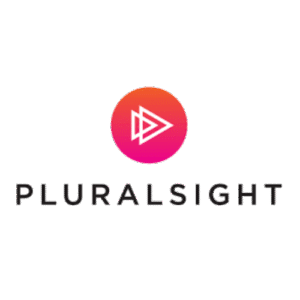
Rated 4.6 out of 5
Pluralsight is a premium tech skills platform offering in-depth courses for software developers, IT professionals, data engineers, and cybersecurity experts. Founded in 2004, it evolved into one of the most comprehensive learning solutions for enterprise-level upskilling. The platform offers thousands of courses taught by industry experts and covers topics such as software development, cloud computing, DevOps, machine learning, security, and more. One of Pluralsight’s unique features is “Skill IQ,” which assesses learners’ skill levels and recommends tailored learning paths. It also offers “Paths” and “Labs,” which guide users through structured content while enabling them to apply what they’ve learned in sandbox environments. Pluralsight is geared more toward intermediate to advanced learners and tech professionals seeking serious career growth. It’s widely used by companies to train engineering teams, with features like reporting dashboards and skill analytics. Though not focused on beginner-level content or hobbyist learners, Pluralsight stands out for its depth, structured approach, and enterprise readiness. With a subscription-based model, it offers monthly or annual plans and occasional free access events.
-
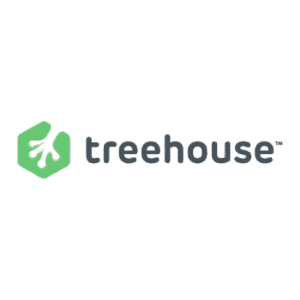
Rated 4.5 out of 5
Treehouse is a subscription-based tech learning platform that focuses on coding, web development, and software engineering. Founded in 2011, it offers beginner to intermediate-level courses in HTML, CSS, JavaScript, Python, Java, and more. What sets Treehouse apart is its structured “Techdegree” programs—curated learning paths with real-world projects, assessments, and peer reviews. Treehouse is ideal for those looking to switch to a tech career or sharpen their development skills in a hands-on way. The platform includes video tutorials, coding workspaces, quizzes, and progress tracking tools. Courses are designed to be practical and job-oriented, with a strong focus on building a portfolio. Its “Tracks” feature provides guided curricula for specific career paths like front-end developer or full-stack JavaScript developer. Treehouse emphasizes a supportive learning environment with forums and Slack-based communities for peer interaction. Though it doesn’t offer university partnerships or formal accreditation, Treehouse is highly respected in the tech industry for preparing job-ready candidates. It’s especially suited for career changers, self-taught developers, and coding bootcamp alternatives seeking an affordable and flexible path into tech.
-

Rated 4.7 out of 5
Udacity is a career-focused online learning platform known for its “Nanodegree” programs—intensive, project-based curricula developed in partnership with industry leaders like Google, IBM, Amazon, and Microsoft. Founded in 2011 by Sebastian Thrun, Udacity originally began as a MOOC but evolved into a specialized platform for tech professionals. Its core offerings span artificial intelligence, data science, machine learning, cloud computing, and autonomous systems. Each Nanodegree program includes real-world projects, interactive quizzes, and mentorship from industry experts. Learners also benefit from career support services such as resume reviews, LinkedIn optimization, and interview prep. While more expensive than platforms like Udemy or Coursera, Udacity’s strength lies in the depth, focus, and job readiness of its programs. Designed for those aiming to break into or advance within the tech industry, the programs often require prior knowledge or professional experience. With a pay-per-program or subscription model, Udacity appeals to learners seeking tangible career outcomes and highly specialized tech skills. It’s widely regarded as a credible alternative to coding bootcamps and traditional computer science education.
